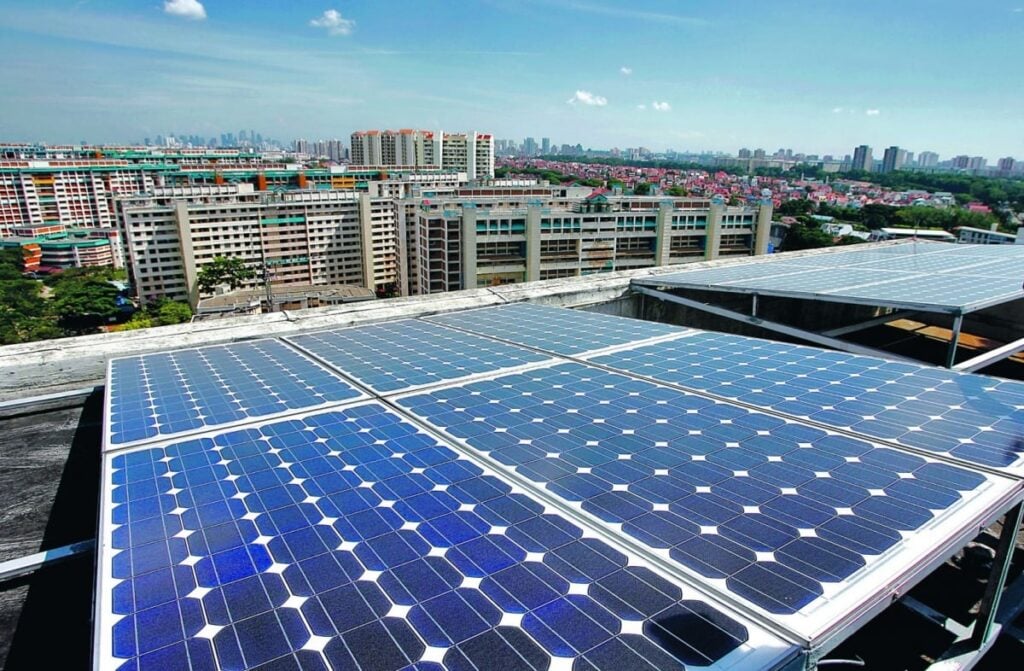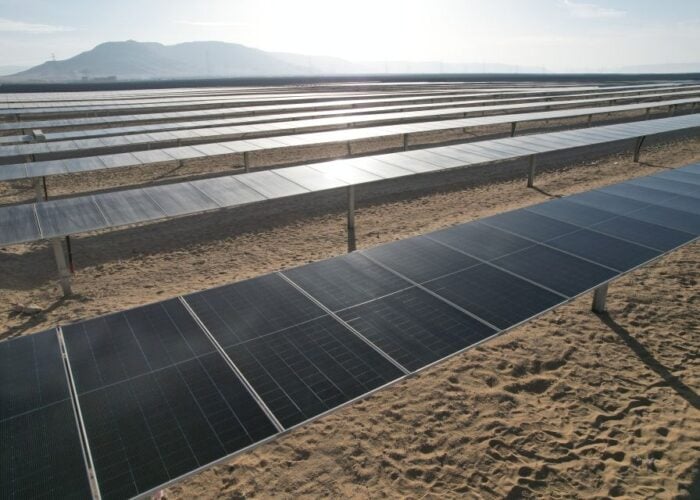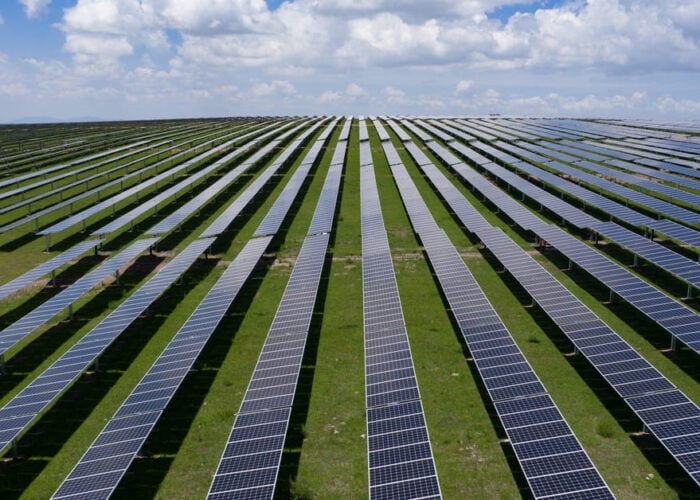
Singapore could sit at the “core” of new regional electricity grids in Southeast Asia, with proposed interconnections to neighbouring countries set to bring 25GW of new renewable power and energy storage projects online.
This is according to Rystad Energy, which published a report into Singapore’s role in the Southeast Asian energy mix this week. The report notes that Singapore already has hydropower and solar PV projects connected to Thailand and Laos, and that other connections have been proposed including other countries and technologies.
Try Premium for just $1
- Full premium access for the first month at only $1
- Converts to an annual rate after 30 days unless cancelled
- Cancel anytime during the trial period
Premium Benefits
- Expert industry analysis and interviews
- Digital access to PV Tech Power journal
- Exclusive event discounts
Or get the full Premium subscription right away
Or continue reading this article for free
These include a solar link to Indonesia, a wind connection with Vietnam, a hydropower and PV connection with Cambodia, and a hydropower link to Malaysia, with total investment in power generation and transmission infrastructure exceeding US$40 billion.
“Singapore stands to benefit the most from Southeast Asia’s emerging regional grid, but realising these gains will require coordinated, win-win cooperation with supplier countries, many of which may see limited direct advantage in linking up with another market,” explained Raksit Pattanapitoon, lead renewables and power analyst for the Asia-Pacific region at Rystad Energy, and one of the authors of the report.
“By leveraging its financial strength and reputation as a reliable business partner, Singapore can help unlock capital for large-scale infrastructure in neighbouring nations, where land is more abundant but power demand is less concentrated.”
Unsurprisingly, Singapore’s combination of low available land area and a per capita energy demand more than double that of Italy’s means it has often relied on importing power from overseas to meet energy demand. Last year, the country moved to import 400MW of solar PV from neighbouring Indonesia, and has since sought to acquire a further 1GW of solar-plus-storage capacity, currently under development by TotalEnergies and Royal Golden Eagle.
The Rystad Energy report notes that strong market dynamics could encourage Singapore to look to import more electricity, with both renewable energy, and energy generated overseas, boasting a lower levelised cost of electricity (LCOE) that domestically-produced fossil fuels.
For instance, the report notes that Malaysian and Indonesian solar-plus-storage projects have an LCOE ranging from US$74-116/MWh and US$91-144/MWh, for projects that can deliver 100% load factor. This compares to an LCOE of US$135-170/MWh for combined-cycle gas turbine projects, with a 100% load factor, in operation in Singapore.
Malaysia-Singapore-Vietnam energy transfer project feasibility
The publication of the report follows the announcement last week that corporates in Malaysia, Singapore and Vietnam were collaborating on a project to assess the feasibility of building new renewable capacity in the latter country and export it to the former countries.
The joint venture partners include Malaysia’s MY Energy Consortium, the PetroVietnam Technical Services Corporation and Singaporean utility Sembcorp Utilities. The signing ceremony was completed at the 2025 ASEAN (Association of Southeast Asian Nations) Summit, and attended by the prime ministers of Malaysia, Vietnam and Singapore.
“These efforts are part of our broader vision for an ASEAN Power Grid—connecting our region with a more resilient and reliable energy supply,” said Singapore prime minister Lawrence Wong in a LinkedIn post to mark the event. “Step by step, we are making this vision a reality.”
While the companies noted that the majority of their efforts would focus on offshore wind power, they said that they would assess the viability of building a new subsea cable in the region, suggesting that even if solar PV is not a key component of this project in particular, Singapore will indeed take on an increasingly important role in efforts to build a connected Southeast Asian energy grid.
“This agreement highlights Singapore’s strategic role as a demand centre and a key enabler of cross-border power imports to support its decarbonisation goals,” added Wong Kim Yin, CEO of Sembcorp Industries, of which Sembcorp Utilities is a subsidiary, referencing Singapore’s plan to import 6GW of low-carbon electricity by 2035.
“We are committed to support the ASEAN low-carbon transition through shared infrastructure and strengthened partnerships.”
Also last week, a joint venture between French energy major TotalEnergies and Singapore industrial group Royal Golden Eagle agreed to co-invest in a solar-plus-storage project in Indonesia which has secured a conditional license from Singapore’s Energy Market Authority (EMA) to import 1GW of power into the city-state.
That deal, signed in Jakarta in the presence of Indonesian president Prabowo Subianto and visiting French president Emanuel Macron came just as Indonesia’s government ratified a national electricity planning strategy, the PLN Electricity Supply Business Plan (RUPTL) 2025–2034, which includes targets for 42.6GW of new renewable energy generation capacity and 10.3GW of energy storage.






